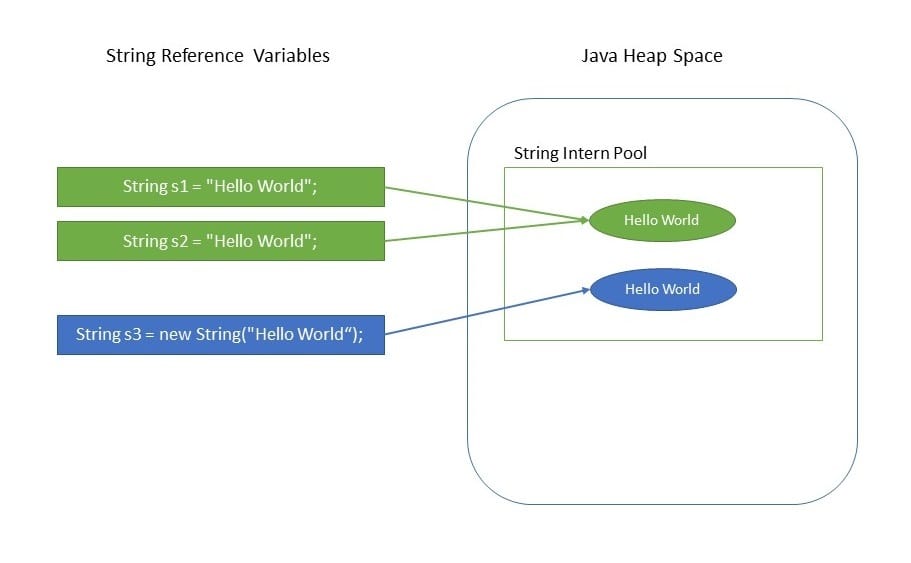Why Are Strings Immutable in Java? Comprehending the Core Concepts
Why Are Strings Immutable in Java? Comprehending the Core Concepts
Blog Article
Immutable Strings: A Trick Element in Ensuring Information Uniformity and Integrity
In the world of information administration, the value of immutable strings can not be overemphasized. These unchanging sequences of characters play an essential role in upholding the integrity and precision of info within systems. By keeping a state of immutability, data uniformity is made certain, promoting a structure of dependability upon which important processes rely. The idea of unalterable strings transcends plain triviality; it is a linchpin in the facility internet of information administration. As we check out the benefits, application techniques, and useful applications of unalterable strings, a clearer picture emerges of their vital nature in guarding the electronic landscape.
The Principle of Unalterable Strings
Immutable strings, a fundamental idea in shows, refer to strings that can not be changed when they are developed. Basically, as soon as a string worth is designated, any type of operation that appears to change the string actually produces a brand-new string. This immutability makes sure data uniformity and integrity in applications, as it stops unforeseen adjustments to the initial information.
Benefits in Data Consistency

Information uniformity is important in different facets of software application growth, including data source administration, multi-threaded environments, and distributed systems (Why are strings immutable in Java?). Unalterable strings add substantially to attaining this consistency by stopping information corruption because of concurrent gain access to. In scenarios where several procedures or strings interact with the very same information simultaneously, unalterable strings act as a safeguard versus race conditions and synchronization problems
Moreover, the immutability of strings streamlines debugging and screening procedures. With immutable strings, designers can rely on that once a string is set, it will certainly stay the same, making it much easier to map the source of mistakes and making certain that test instances create regular results. This dependability in information managing eventually causes more durable and steady applications.

Implementing Unalterable Strings
Making certain the immutability of strings needs a thoughtful technique to their implementation in software application advancement. Once a string object is produced, one essential approach is to create string courses in a means that protects against modifications. By making strings unalterable, programmers can improve information consistency and dependability in their applications.
To carry out unalterable strings efficiently, designers must prefer creating new string things instead than modifying existing ones. This method makes certain that when a string is designated a value, it can not be changed. In addition, any operation that appears to change the string needs to create a new string with the wanted modifications rather of modifying the initial.
Additionally, using immutable strings can simplify concurrency administration in multi-threaded environments. Considering that immutable strings can not be altered after production, they can be safely shared among multiple threads without the danger of information corruption.
Function in Dependability Guarantee
In software growth, the view usage of immutable strings plays a vital function in making sure the dependability of information operations. Immutable strings, when developed, can not be changed, guaranteeing that the information they stand for remains regular throughout the application's execution. This immutability residential property provides a level of assurance that the information being processed will not be accidentally transformed, causing unexpected results or errors in the system.
By incorporating unalterable strings into software style, developers can enhance the dependability of their applications by reducing the threats related to mutable data - Why are strings immutable in Java?. Immutable strings assist in preventing information corruption or unintentional alterations, which can read the article be specifically vital when dealing with sensitive information or when data stability is extremely important
In addition, using immutable strings streamlines concurrent processing, as numerous strings can securely gain access to and share string data without the threat of one string altering the web content while one more is reading it. This facet adds dramatically to the overall dependability of the software program system, making certain predictable and consistent behavior in data taking care of operations.
Applications and System Combination
The seamless integration of immutable strings into different applications and systems is crucial for ensuring robust data uniformity and dependability throughout varied technological settings - Why are strings immutable in Java?. Unalterable strings play a critical duty in enhancing the integrity of data exchanges and communications within complicated software ecosystems. By including unalterable strings right into applications, programmers can reduce the dangers linked with data meddling, unauthorized modifications, and unintended modifications, thus fortifying the overall protection posture of the system
In the context of system assimilation, immutable strings function as a fundamental component for establishing safe interaction channels and helping with smooth data transfers between various elements. Their immutable nature makes certain that data transmitted in between systems remains verifiable and unmodified, lowering the chance of disparities or mistakes that might compromise the integrity of the entire system. In addition, unalterable strings can enhance interoperability in between disparate systems by supplying a standard layout for information representation, allowing more reliable data handling and exchange procedures throughout interconnected platforms. By embracing immutable strings in applications and system integration processes, companies can fortify their data facilities and maintain the reliability and consistency of their info possessions.
Verdict
To conclude, unalterable strings play an important role in keeping information special info consistency and integrity in various applications and system assimilations. By making certain that strings can not be changed when developed, the stability of data is maintained, minimizing the risk of variances and errors. Executing unalterable strings can considerably improve the reliability of systems, eventually resulting in more reliable and exact data handling.

Report this page